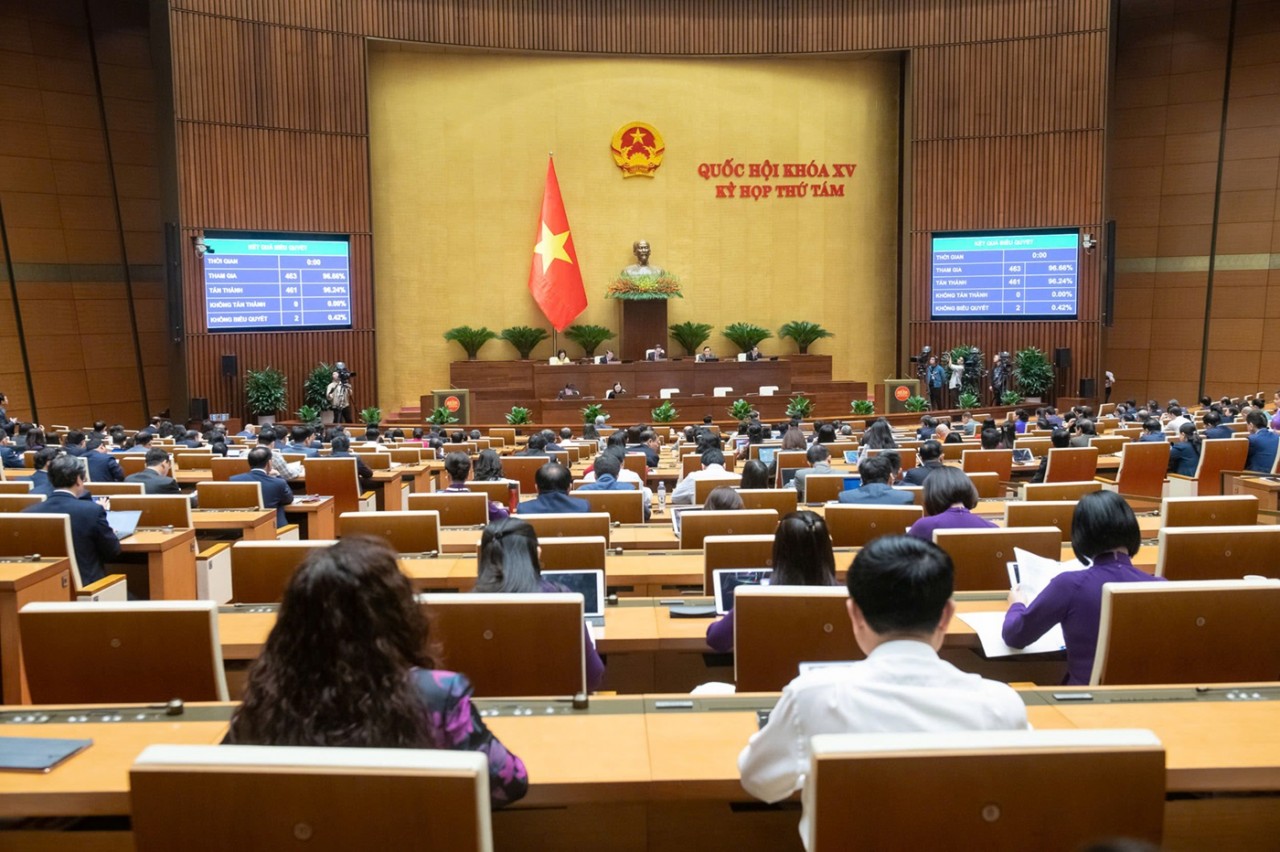Experts Contribute to Draft Revised Law on Domestic Violence Control
Representatives from social and community-based organisations on September 12 shared with the National Assembly (NA) Deputies in Hanoi their activities in addressing domestic violence and discussed mechanism to join forces in tackling domestic violence for Vietnam.
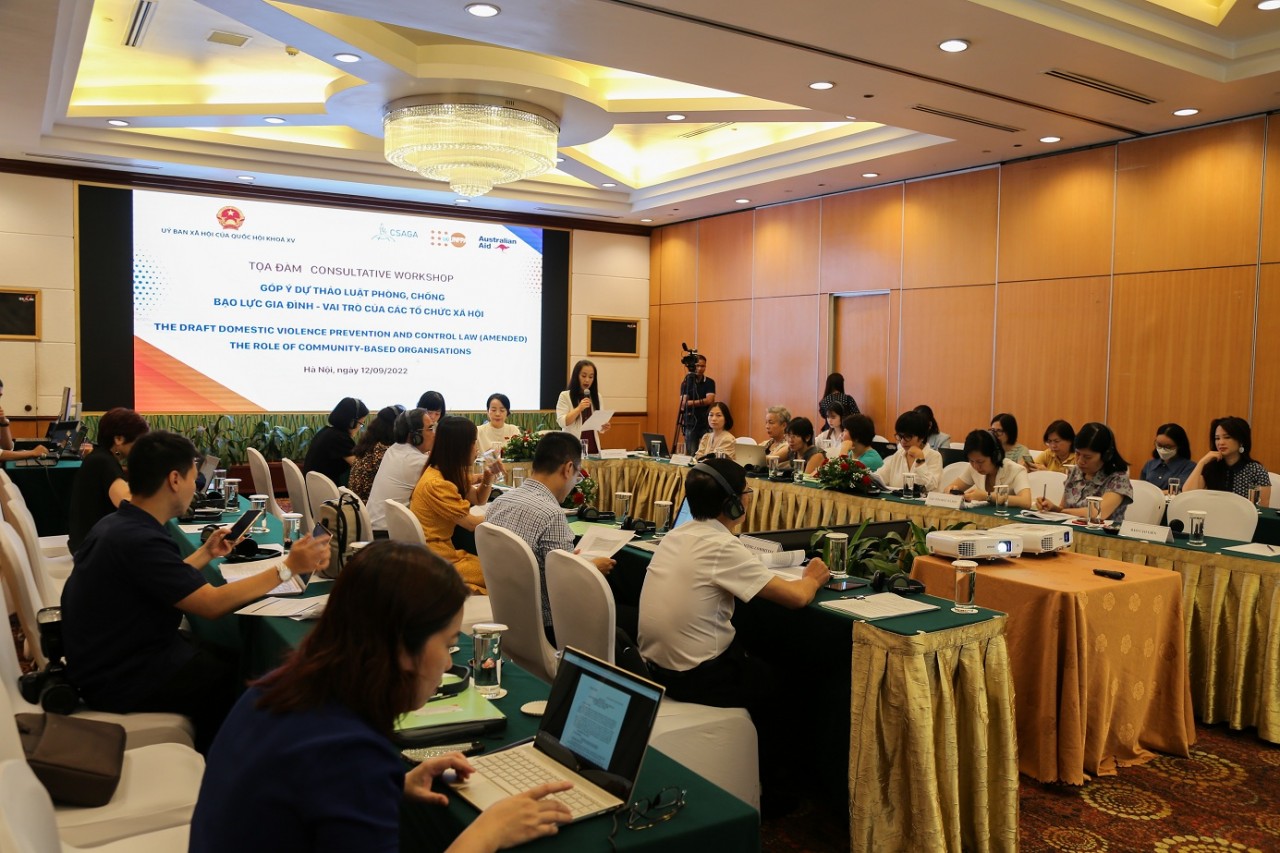 |
| UNFPA Representative in Vietnam Naomi Kitahara speaks at the forum. Photo: UNFPA Vietnam |
The discussion was part of the consultative workshop held by the NA’s Committee for Social Affairs in collaboration with the Centre for Studies and Applied Sciences in Gender – Family – Women and Adolescents (CSAGA) to review the draft amended Domestic Violence Prevention and Control Law (DVPC Law).
High on the agenda of the workshop, which was jointly supported by UNFPA and the Government of Australia, was the presentation by the NA’s Committee for Social Affairs relating to the latest revision of the draft DVPC Law, following the comments by the National Assembly in June 2022.
Representatives from Vietnam’s Gender-based violence (GBV) Net and CSAGA shared the participants with their experience and best practices in DV prevention and control, especially innovative communications activities to raise public awareness and address DV.
The participants also heard about international experiences in a video message shared by ambassadors and heads of Delegations in Hanoi, including Australia, Canada, the EU, Spain, Sweden, and the UN.
Addressing the forum, Vice Chairwoman of the NA’s Committee for Social Affairs Nguyen Thi Kim Thuy acknowledged the information and experience shared at the workshop, including international experience and best practices in addressing domestic violence, especially from Australia with the highlight of the mechanisms of engaging social organizations in delivering services as well as the development of specialist courts for domestic violence, and the evidence-based policy development.
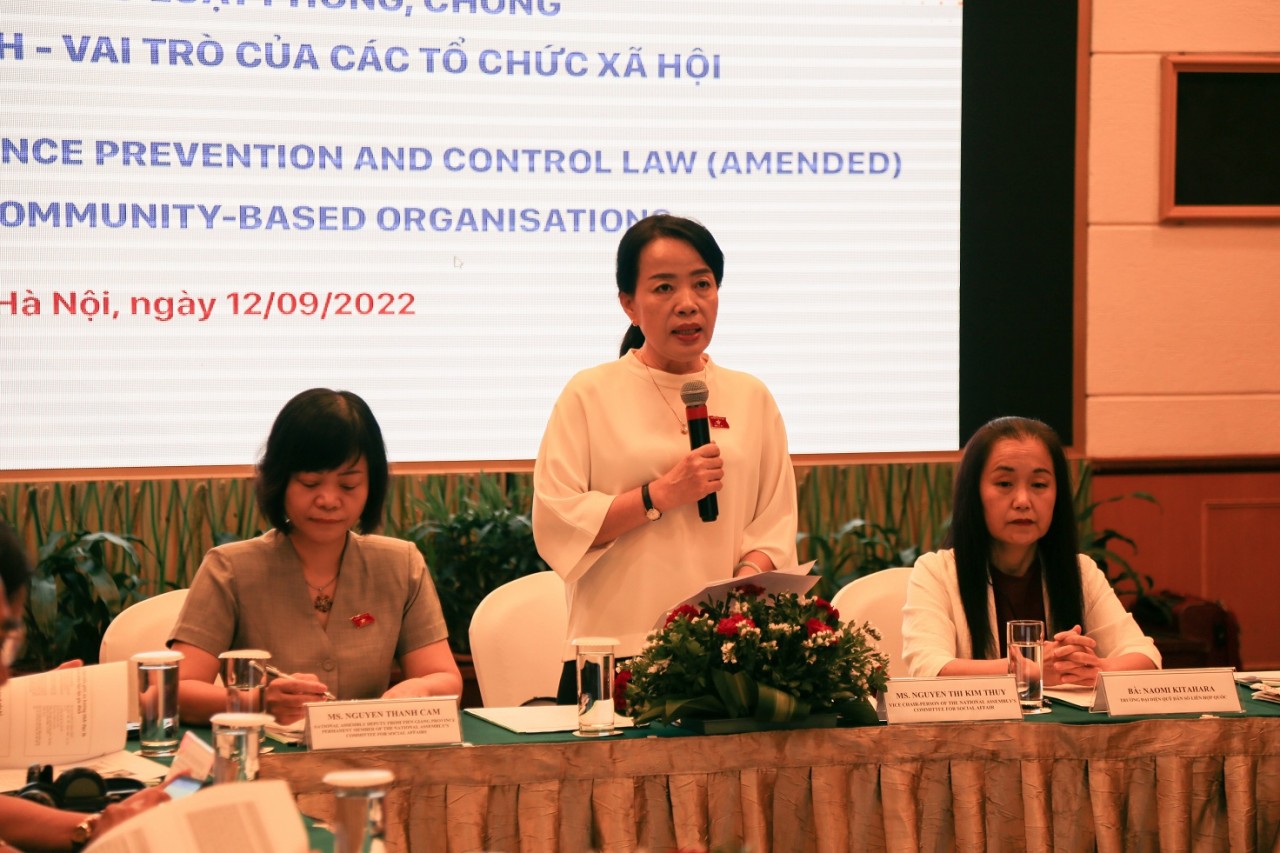 |
| Vice Chairwoman of the NA’s Committee for Social Affairs Nguyen Thi Kim Thuy. Photo: UNFPA Vietnam |
The current Law on Domestic Violence Prevention and Control was approved by the 12th NA on November 21, 2007, and took effect on July 1, 2008.
After nearly 15 years of enforcement, the law has helped improve public awareness of domestic violence prevention and control, thus protecting victims, dealing with domestic violence and legal violations, and improving gender equality in families.
However, despite certain achievements, domestic violence remains a problem. The National Study on violence against women in Vietnam in 2019, which was conducted by Vietnam’s General Statistical Office and MOLISA, with support from Australia and UNFPA, showed little change in violence against women since the 1st study in 2010. In particular, 62.9% of women in Vietnam experienced at least one form of physical, economic, emotional, and/or sexual violence and controlling behaviors in their lifetime.
In addition, 90.4% of survivors of violence did not seek any help from authorities, while half of them never told anyone about the violence. Thus, domestic violence is hidden in society, and it is an alarming issue.
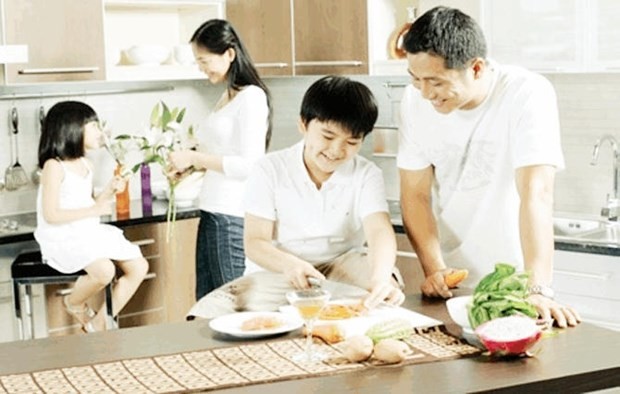 |
| Source: NDO |
Given this, it is high time to strengthen the 2007 DVPC Law. Since October 2021, when the first draft of the Domestic Violence Prevention and Control Law was released for feedback from the public, many technical meetings and consultative workshops were organized by the Ministry of Culture, Sports and Tourism to discuss options, share experiences from other countries, and debate the best alternative to take for Vietnam.
Containing six chapters with 62 articles, the draft revised law focuses on measures for preventing domestic violence and protecting and assisting victims, coordination mechanisms and conditions for implementing domestic violence prevention and control, and the encouragement of private participation.
The amendment also focused on the provision of essential and integrated services for DV survivors. It requested the relevant stakeholders to pay further attention and provide financial and technical resources during the Law implementation.
After the amended DVPC Law was elaborated during the third plenary session of the 15th National Assembly in June, the Ministry of Culture, Sports and Tourism and National Assembly Committee for Social Affairs have incorporated all the feedback and comments and finalized the latest draft version with 56 articles.
As part of its efforts to continue to get feedback and comments from the local authorities of the Northern and central provinces and cities in Vietnam, the Ministry of Culture, Sports and Tourism in collaboration with the National Assembly Committee for Social Affairs will organize two more consultative meetings in Vinh Phuc and Nha Trang in coming weeks.
UNFPA has been working very closely with MoCST during the revision process, providing technical and financial support to incorporate recommendations from different studies and ensure international standards and commitments on the prevention and response to domestic violence.
In her opening remarks, the UNFPA Representative for Vietnam, Naomi Kitahara stressed that UNFPA is glad to see the revised Law on Domestic Violence Prevention and Control has been based on a human rights approach, incorporating international lessons, and good practices.
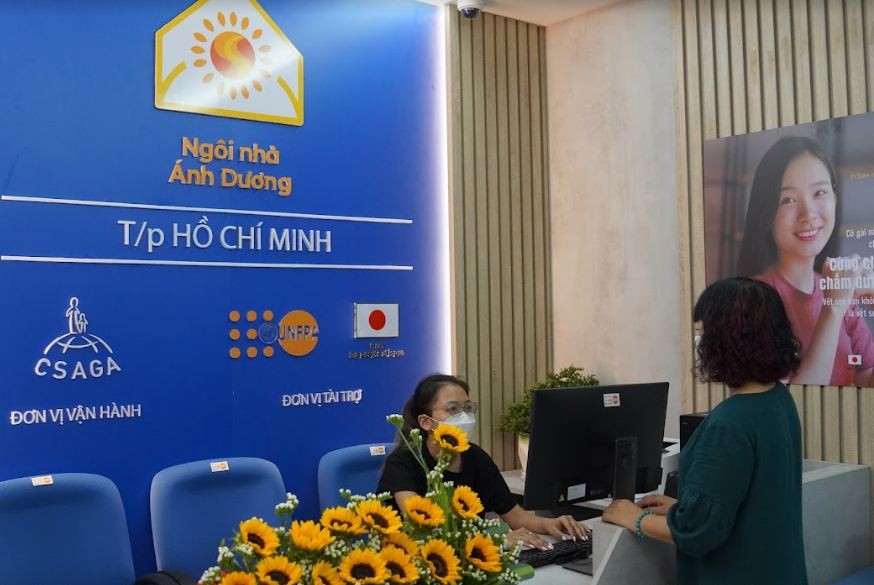 |
| Anh Duong House provides safe shelter and support services to battered women and their dependent children. Source: UNFPA Vietnam |
UNFPA has recommended strengthening the effectiveness of state institutions while creating favorable conditions for community-based and non-governmental organizations to contribute to the implementation of policies and programmatic interventions to tackle domestic violence in Vietnam.
The survivor–centered approach has been applied to ensure the rights of domestic violence survivors, and their needs and voices have been taken into account seriously. This was important, especially in the context of Vietnam where violence against women is mostly hidden, she added.
CSAGA Founding Chairwoman and Director Nguyen Van Anh voiced her honor to join the discussion during the development of the 2007 Law on Domestic Violence Prevention and Control as a representative of social organizations. She's glad that I’m able to contribute to the amendment of this Law. In the past 15 years, social organizations and non-governmental organizations made a lot of positive contributions to the Government’s efforts to end domestic violence. With the revision of the current Law, favorable conditions can be created for social and community-based organizations to be fully engaged in the Government’s programs to prevent and control domestic violence.
Van Anh trust that CSAGA's perspectives shared at this workshop will be considered and incorporated in the draft amended Law on Domestic Violence Prevention and Control in order to promote community-based activities in the coming years.
 | KOICA Continues to Support Women's Safe House Model in Vietnam KOICA and UNFPA continued their commitment to zero gender-based violence and harmful practices to women and girls in Vietnam. |
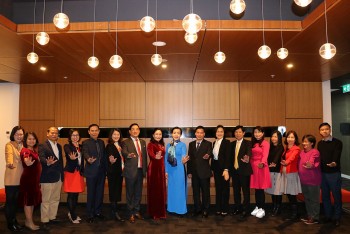 | Vietnam, Australia Exchange Experiences on Domestic Violence The Vietnamese Government has worked hard to end violence against women and children, with special attention to negative impacts from Covid-19 on the people. However, ... |
 | Vietnamese Woman Opens Successful Restaurant in Manila Residing in the Philippines to live with her American husband, Nguyen Len misses the atmosphere of crowded restaurants in Vietnam. A home-style restaurant was therefore ... |
Recommended
 Focus
Focus
Vietnam Leaves Imprints on the World Peacekeeping Map
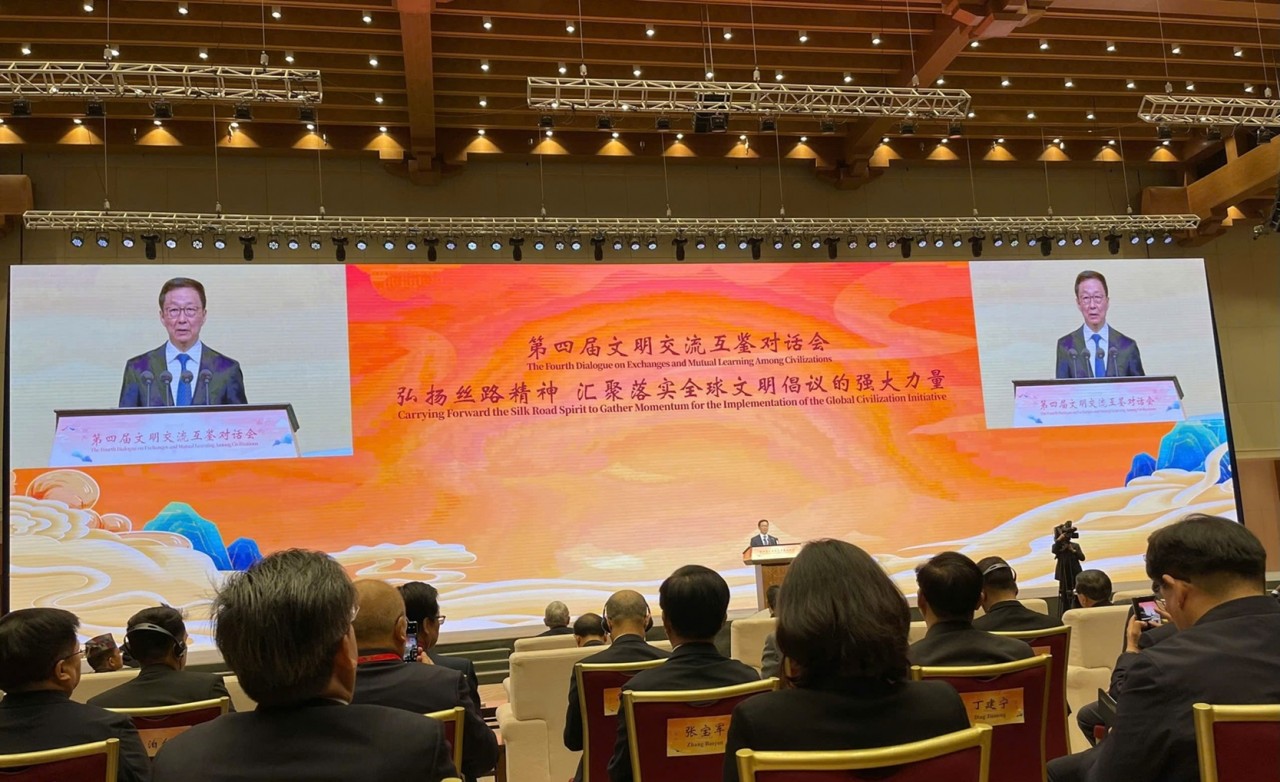 Friendship
Friendship
VUFO Attends Fourth Dialogue on Exchange and Mutual Learning among Civilizations
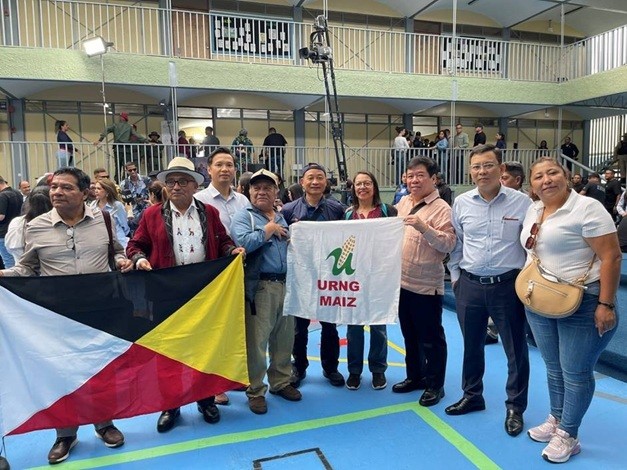 Focus
Focus
Strengthen Solidarity and Friendship Between Vietnam and Venezuela
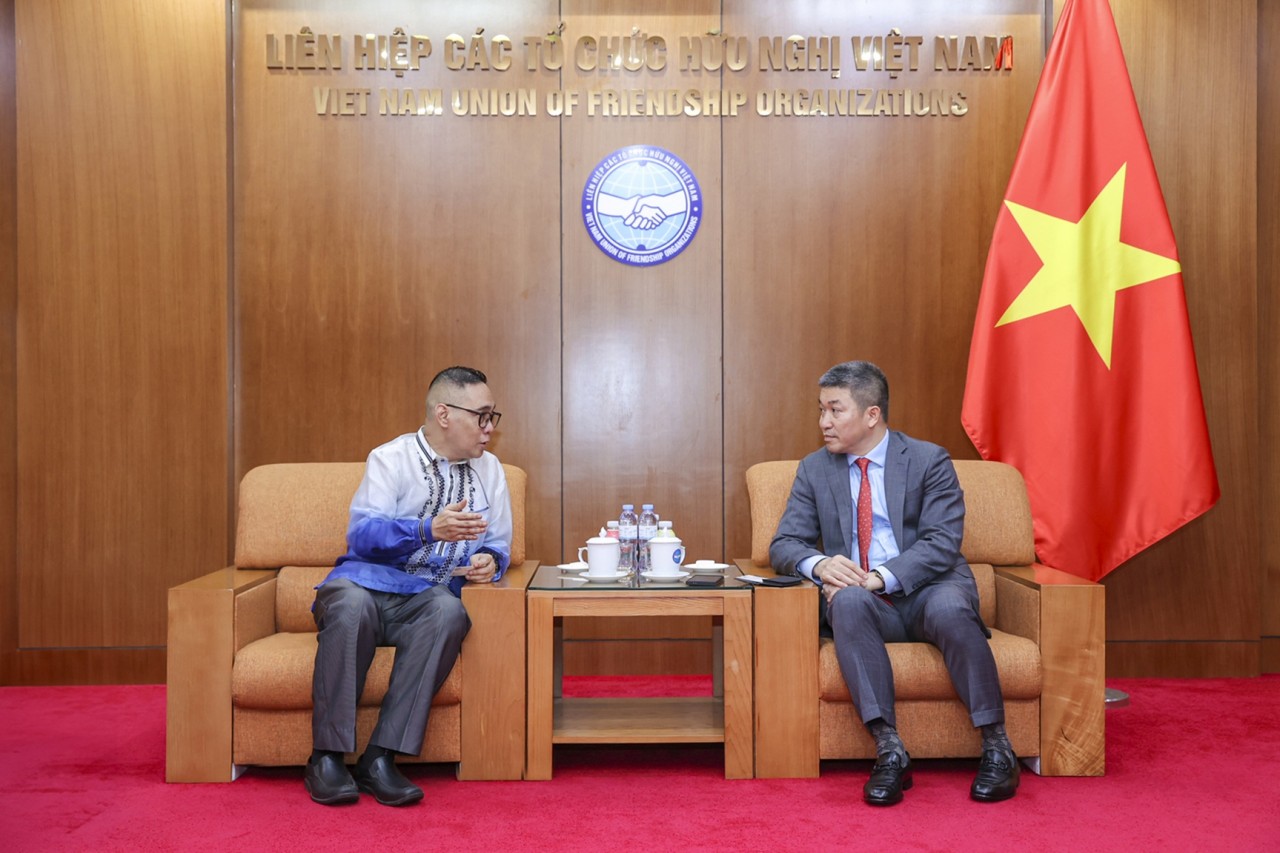 Friendship
Friendship
VUFO Supports Initiatives to Enhance People-to-people Exchanges between Vietnam and the Philippines
 Focus
Focus
"Vietnamese - Cuban Children, Deep Friendship" Painting Contest Announces Winners
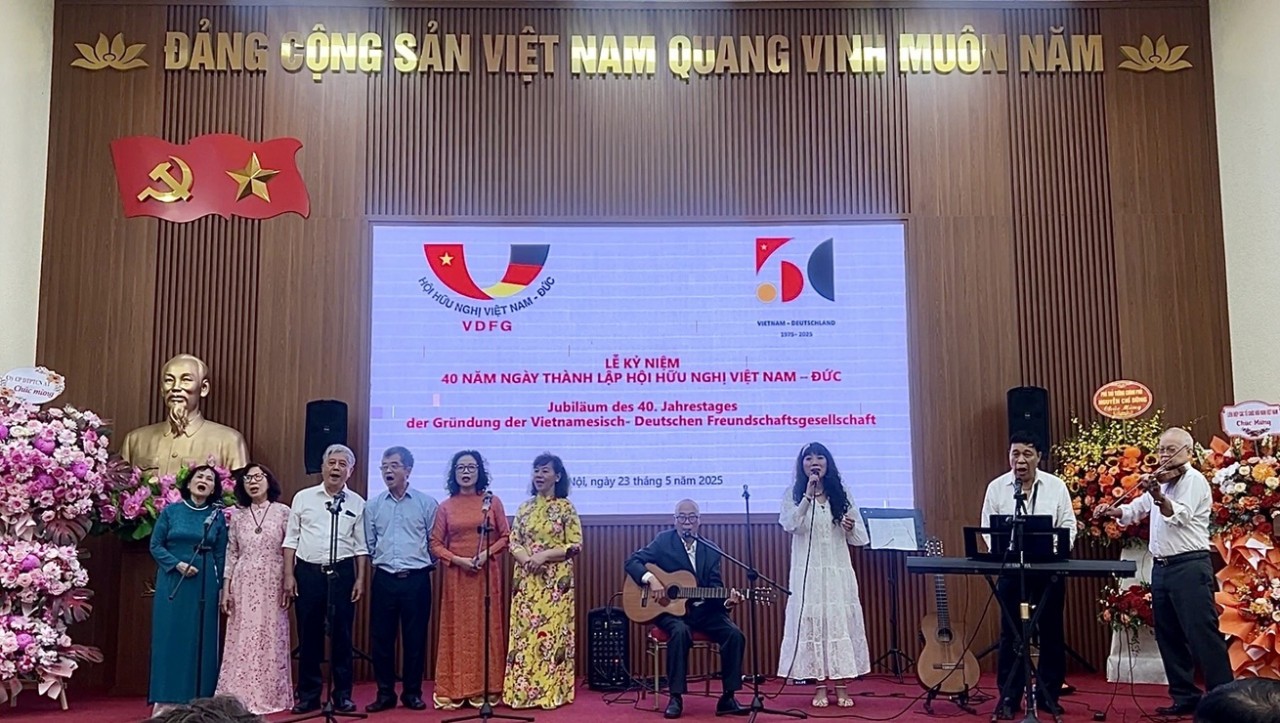 Focus
Focus
Solid Bridge for People-to-people Relations between Vietnam and Germany
 Focus
Focus
35 Years of FES in Vietnam: Fostering Dialogue, Advancing Equity
 Friendship
Friendship

